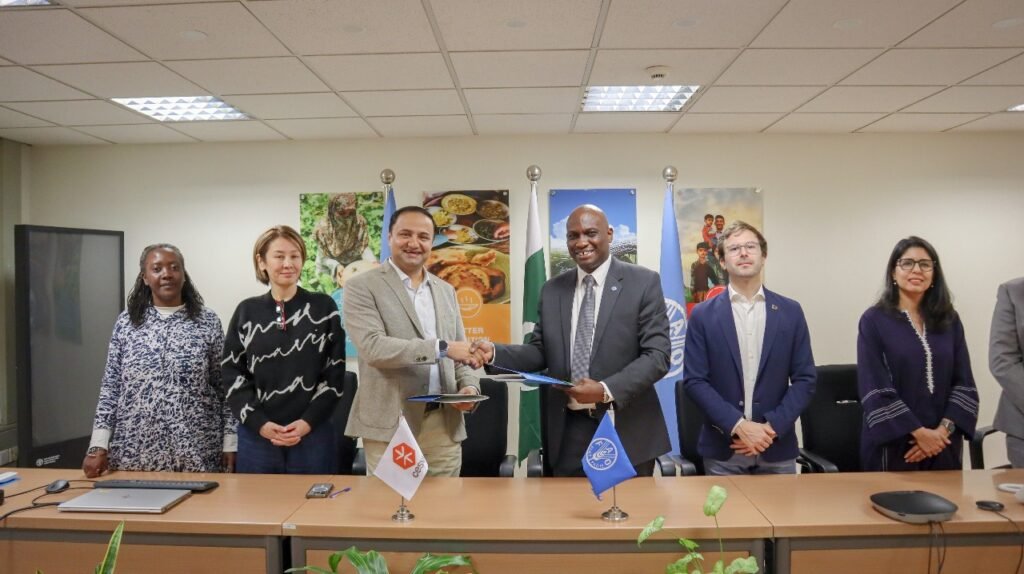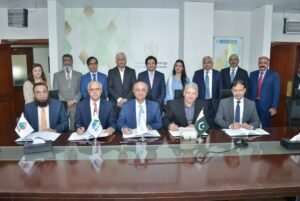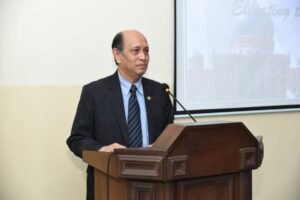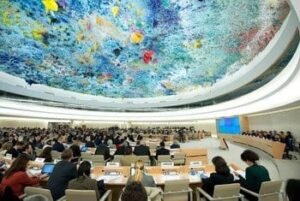
Islamabad, : Food and Agriculture Organization of the United Nations (FAO) and CESVI formalized their partnership for the project “Resilience & Adaptation by Fostering Anticipatory Action (RAFAA) funded by the Italian Ministry of Foreign Affairs and International Cooperation through the Italian Agency for Development Cooperation (AICS).” The signing was carried out by Mr. James Okoth, Officer in Charge, FAO Pakistan, and Farhan Khan, Regional Manager at CESVI, while Dr. Lorenzo Fellin, Environment & Climate Change Expert at AICS Islamabad Office was also present at the ceremony.
The RAFAA project aims to enhance climate resilience and adaptive capacity of vulnerable rural communities in Sindh by integrating anticipatory action, disaster risk reduction, and climate-resilient livelihood support. The three-year, EUR 4 million initiative contributes directly to Pakistan’s National Climate Change Policy, Sindh Climate Change Policy, and water sector priorities.
Under the agreement, FAO serves as the lead agency responsible for technical orientation, policy-relevant interventions, and oversight of field implementation. CESVI, an Italian NGO with strong operational experience in Pakistan, will act as the implementing partner, leading field activities in close coordination with local communities and provincial institutions.
The partnership brings together FAO’s global expertise in anticipatory action and resilience programming with CESVI’s established field networks. This combined approach will help harmonize multi-hazard early warning systems, operationalize community-led disaster risk reduction committees, and support local resilience planning. The project will also promote climate-resilient livelihoods, gender-responsive interventions, innovative crop insurance models, and nature-based solutions.
Speaking at the ceremony, FAO, CESVI and AICS representatives noted that the initiative will strengthen governance across provincial departments, Agriculture, Forestry, Livestock, Irrigation, PDMA Sindh, SIDA, and others, while benefiting 175 000 rural residents and favouring approximately 1.5 million individuals across Sindh province.
They emphasized that the collaboration represents a significant step toward proactive, community-centered resilience. By combining harmonized early warning systems, enhanced water quality monitoring, and targeted livelihood support, the RAFAA project will enable communities to anticipate and respond more effectively to climate shocks.







